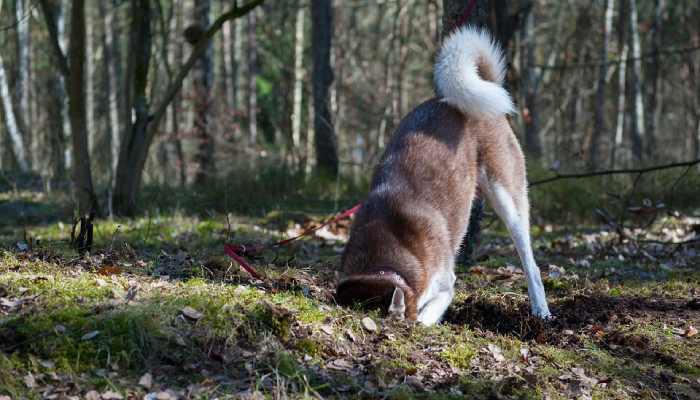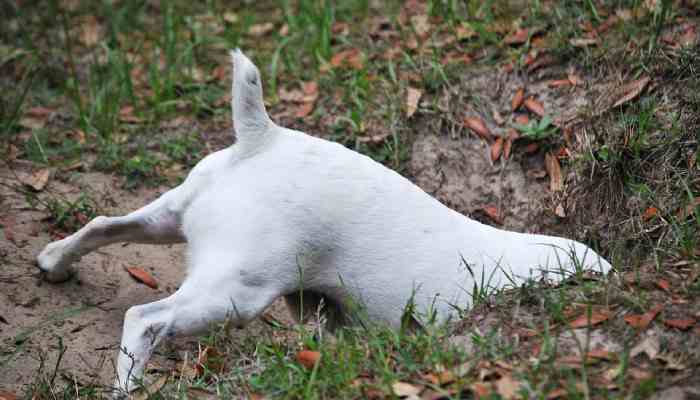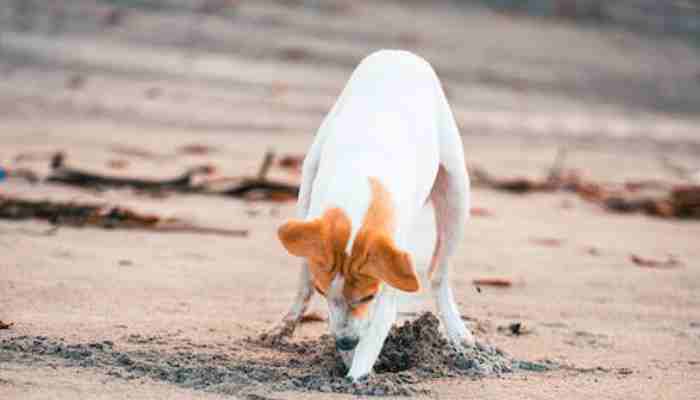Digging behaviour is a common canine trait that can range from harmless digging in the garden to destructive excavation projects. While various factors contribute to this behaviour, one significant trigger is boredom. This article delves into the intricate relationship between boredom and digging behaviour in dogs, shedding light on the underlying causes, signs to watch for, and effective strategies to prevent and manage this behaviour. Understanding this connection is crucial for responsible dog ownership and fostering a harmonious living environment for both dogs and their human companions.
Boredom arises when a dog lacks sufficient mental and physical stimulation. Dogs, like humans, require engagement and activities that cater to their natural instincts and intellect. When their daily routine lacks variety or fails to meet their needs, boredom can set in, prompting dogs to seek alternative outlets for their energy and mental stimulation. Digging provides an instinctual and physically engaging activity that can alleviate their boredom.
Recognizing the signs of boredom-induced digging behaviour is crucial for early intervention. Some common indications include:
– Excessive digging in specific areas of the yard or living space.
– Digging accompanied by other signs of restlessness, such as pacing or excessive barking.
– The presence of holes or trenches in the garden, particularly near fences or boundaries.
– Digging occurring predominantly when the dog is left alone or lacks mental stimulation.
– An overall pattern of destructive behaviour when boredom is prevalent.
Several underlying factors can contribute to boredom-induced digging behaviour in dogs. These include:
– Lack of physical exercise: Insufficient exercise can lead to pent-up energy, prompting dogs to find alternative ways to release it, such as through digging.
– Insufficient mental stimulation: Dogs require mental challenges and enrichment to keep their minds engaged. Without appropriate mental stimulation, boredom can set in and trigger digging behaviour.
– Lack of social interaction: Dogs are social animals and thrive on companionship. A lack of social interaction or isolation can lead to boredom and subsequent digging as a means of seeking stimulation or attention.
– Breed predisposition: Certain dog breeds, such as terriers or dachshunds, have a natural inclination for digging due to their historical roles as vermin hunters or burrowers. Boredom can amplify this inherent behaviour.
Preventing and managing boredom-induced digging requires a multifaceted approach that addresses the root causes while providing suitable alternatives. Consider the following strategies:
– Regular exercise: Engage in daily physical activities, such as walks, runs, or interactive play sessions, to ensure your dog receives sufficient exercise and outlets for their energy.
– Mental stimulation: Incorporate puzzle toys, treat-dispensing toys, and training sessions to challenge your dog’s intellect and provide mental enrichment.
– Environmental enrichment: Create an engaging environment with toys, scent games, and interactive play areas to keep your dog mentally stimulated and prevent boredom.
– Social interaction: Ensure your dog has regular opportunities for socialization with both humans and other dogs, such as visits to dog parks or playdates with well-matched canine companions.
– Digging alternatives: Designate a specific digging area in your yard and encourage your dog to dig there by burying toys or treats. This redirects their natural digging instinct to an acceptable location.
– Positive reinforcement training: Use positive reinforcement techniques to reward desired behaviour and redirect your dog’s attention when they exhibit digging behaviour inappropriately.
– Professional guidance: If digging behaviour persists or becomes destructive despite efforts to address boredom, consult a professional dog trainer or behaviourist who can provide specific guidance and tailored solutions.
Boredom-induced digging behaviour in dogs is a common issue that can be effectively addressed through understanding, prevention, and suitable management strategies. Recognizing the signs of boredom, addressing underlying factors, providing appropriate outlets for physical and mental stimulation, and redirecting their digging instincts can help alleviate this behaviour. By actively addressing boredom and engaging in responsible dog ownership, we can create a stimulating and fulfilling environment for our canine companions, ensuring their well-being and fostering a harmonious bond between dogs and their human families.



